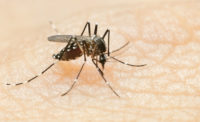According to the Brazilian Tourism Board, approximately 350,000 – 500,000 international visitors and athletes from 207 countries are expected to travel to Rio de Janeiro, Brazil for the 2016 Olympic and Paralympic Games (Games). This travel volume represents a very small fraction – less than 0.25% – of the total estimated 2015 travel volume to Zika-affected countries.
How worried should those visitors be about the Zika virus? The Centers for Disease Control and Prevention (CDC) says visitors to the Games are expected to have a low probability of mosquito-borne Zika infections because the Games will occur during the winter season in Rio de Janeiro (August 5-21 and September 7-18, respectively) when the cooler and drier weather typically reduces mosquito populations. The CDC conducted a risk analysis to predict those countries at risk for Zika virus importation exclusively attributable to the Games.
Key Points:
· Whereas all countries are at risk for travel-associated exportation of Zika virus, CDC estimated Chad, Djibouti, Eritrea, and Yemen as having unique risk attributable to their travel for the Games.
· These four countries do not have substantial travel to any country with local Zika virus transmission, except for their participation in the Games, and have environmental conditions and population susceptibility to sustain mosquito-borne transmission of Zika virus.
· Prevention recommendations for athletes and all other visitors to the Games include that:
o Pregnant women should not travel to the Games.
o All visitors should take steps to prevent mosquito bites, both during travel and for 3 weeks after returning home.
All visitors should take measures to prevent sexual transmission.






